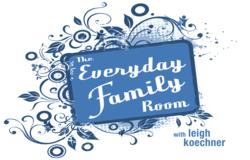Archive for the ‘parenting’ Category

My client Betsy Brown Braun, development specialist and best selling author of award winning Just Tell Me What To Say & You’re Not The Boss Of Me, has just posted this amazing blog on raising kids by example. Check it out below.
YOU ARE WHO YOU ARE WHEN NO ONE IS LOOKING
The mother unwrapped the straw, poked it into the little box, and handed the drink to her toddler as they walked out of the grocery store. The sliver of straw paper slipped from the mother’s hand. I doubt that she even noticed it.
Rolling my grocery cart back to its stable, I looked around to see how many carts were randomly parked, willy-nilly throughout the lot, nowhere near the stable. Who leaves her cart to roll into the next parked car?
Since my greatest interest and life’s work centers on parents and kids, the world is my lab. I notice random acts, relationships, and interactions wherever I go. Observing, noticing, gathering data, storing information, wondering. That’s me. Today at the grocery store I couldn’t help but think about where and how children learn to do the right thing, to make the right choices. Of course, “right” means different things to different people, but I’m thinking of generally accepted right. The answer is kind of complicated, but not really.
To do the right thing, children have to do the wrong thing. Sounds crazy, but it’s true. Much of growing up is trial and error, testing limits and boundaries. Do it wrong, experience the consequence, then do it right the next time. At least you hope it works that way. That’s certainly one of the ways kids figure out what is the right thing to do.
However, even without actively teaching your children, they learn from you because they copy you. Think about the things that you automatically do because that’s the way you’ve always done it. There is the great old tale of the mother who is preparing her Thanksgiving turkey with her adult daughter. The daughter asks, “Mom, why do you always cut off the end of turkey before you put it in the roaster?” The mother who has no answer, knowing only that she cut it because her mother had always done so, calls her own mother. “Mom,” she asks, “Why do we always cut off the end of the turkey before putting it in the roaster?” The grandmother replies, “So it will fit in my roaster.”
Over and over I remind parents that your kids are watching you all the time. It’s about how you live your life every day. If you ALWAYS hang up the clothes you tried on before you leave the store dressing room, the habit will become your child’s too. If you ALWAYS put you trash in the wastebasket, your child will do the same. If grocery shopping ALWAYS ends by returning your cart to the stable, not doing so won’t be a choice. Behaviors, right and wrong, become automatic when they are habitual. And so it will be for your absorbent child. Doing the right thing has a good chance of becoming ingrained in him, whether or not you are there watching.
Next week starts the Jewish High Holidays, the time of reflection: What has been in the year that has passed, and what will be going forward? Whether you observe the Jewish holidays or not, the fall is a good time for everyone to reboot. Are you a person who does the right thing when no one is looking? If your answer is yes, then it’s likely you’re teaching your child to do the same.

Why are so many kids picky eaters? And what is a parent to do about it?
Dr. Natalie Muth, a pediatrician and author of Eat Your Vegetables! and Other Mistakes Parents Make: Redefining How to Raise Healthy Eaters.
KCBS news had Dr. Muth on their show to share her step-by-step plan to help kids embrace fruits, vegetables and other healthful foods without battles, bribes and coercion. These strategies, featured in her book, are tailored to a child’s age and development level, are based on scientifically proven research and are accompanied by real-life anecdotes and expert advice. Each chapter is followed by simple, kid-friendly recipes developed by Dr. Mary Saph Tanaka, a pediatric resident at UCLA and a talented amateur chef, which help parents turn the information contained within the chapters into action — starting with the next meal or snack.

HOW TO GET KIDS TO EAT HEALTHY – ASK DR. NATALIE DIGATE MUTH
It’s back to school and parents want to send their kids to school with healthy lunch choices. Natalie Digate Muth, MD, MPH, RD, a community pediatrician and registered dietician widely recognized for her expertise in childhood obesity, nutrition and fitness was a recent guest on KABC news to talk about how to get kids to eat well — even the pickiest of eaters.
Dr. Muth’s book Eat Your Vegetables! and Other Mistakes Parents Make: Redefining How to Raise Healthy Eaters has lots of great strategies to get kids to eat right and wonderful recipes that can be applied to school lunches..
A spokesperson for the American Council on Exercise (ACE), Dr. Muth informs media outlets throughout the country on pertinent nutrition and fitness issues. She is a sought after pediatric expert by the media. She has appeared on ABC World News Now; is a regular guest on San Diego Living; KABC, KCBS and has been quoted in multiple print and online outlets including The New York Times, Health Magazine, Seattle Times, Denver Post, WebMD, and Slate.

My client, Natalie Digate Muth, MD, MPH, RD, a community pediatrician and registered dietician widely recognized for her expertise in childhood obesity, nutrition and fitness talk to Dr. Anne Abram on BlogTalk radio about how to prevent childhood obesity and how to help your child if he/she suffers from it already.
Dr. Muth’s book Eat Your Vegetables! and Other Mistakes Parents Make: Redefining How to Raise Healthy Eaters was released in April 2012.
A spokesperson for the American Council on Exercise (ACE), Dr. Muth informs media outlets throughout the country on pertinent nutrition and fitness issues. She is a sought after pediatric expert by the media. She has appeared on ABC World News Now; is a regular guest on San Diego Living; and has been quoted in multiple print and online outlets including The New York Times, Health Magazine, Seattle Times, Denver Post, WebMD, and Slate.

This Sunday, The New York Times Magazine will feature a story entitled “Red Crayon, Blue Crayon,” by Austin Considine, which poses questions about publishers who sell political literature to children in the form of coloring books.
My client, Fran Walfish, a Los Angeles-based clinical psychotherapist who specializes in children and families, says that “Political coloring books aren’t new, nor are they limited to one side of the ideological spectrum… In the 1990s,.. there were coloring books about changing families, addressing themes like gay parenting.”
For the full story click here.


My client, Karen L. Schiltz, Ph.D., a clinical psychologist in private practice, specializing in the clinical and forensic neuropsychological assessment of children, adolescents, and young adults was asked to contribute to Atriumpsych.com. Her article One Suit Doesn’t Fit All: The Role of Pediatric, Young Adult Clinical and Forensic Neuropsychological Assessments outlines the different needs of clinical and forensic assessments when dealing with children and young adults.
Dr. Schiltz is the author of Beyond the Label: A Guide to Unlocking a Child’s Educational Potential (Oxford University Press).

My client, parenting expert, Betsy Brown Braun, recently appeared on MyFoxLA to talk about the preschool application process.
Here’s some of her tips:
1. Consider the location – Traveling too far, too long in the car, is not good for the child, for the parent, or for the environment.
2. Consider the philosophy of the school – Every school has a different philosophy the educational philosophy and approach to child development. You need to agree with it.
3. Consider the director – Are you comfortable with that person? They hire the teachers who disseminate the educational philosophy – this is the person who will help and support you through all the trials you will experience in raising a young child.
4. Consider the culture of the school – This doesn’t refer to the ethnic culture. It is who the families are and if you feel aligned with them, if you speak the same language (they will be your friends forever.)
You can find Betsy’s books – Just Tell Me What To Say and You’re Not The Boss of Me on Amazon.

Dr. Nina Shapiro, Director of Pediatric Ear, Nose, and Throat at the Mattel Children’s Hospital UCLA, and Associate Professor of Surgery at the David Geffen School of Medicine at UCLA speaks about her new book Take a Deep Breath: Clear The Air For The Health Of Your Child (World Scientific, January 2012) on WGAU.

Heidi Stevens, who writes the Parenthood column for the Chicago Tribune asked my client, Karen L. Schiltz, Ph.D., is a clinical psychologist in private practice, specializing in the clinical and forensic neuropsychological assessment of children, adolescents, and young adults what parents should when their middle schooler brings home a “D.” Dr. Schiltz, author of Beyond the Label: A Guide to Unlocking a Child’s Educational Potential (Oxford University Press) says this is the “time to be your child’s advocate.” She goes on to say there is often “more” to the story than just the D. So talk to your kids. For the full article click here.






